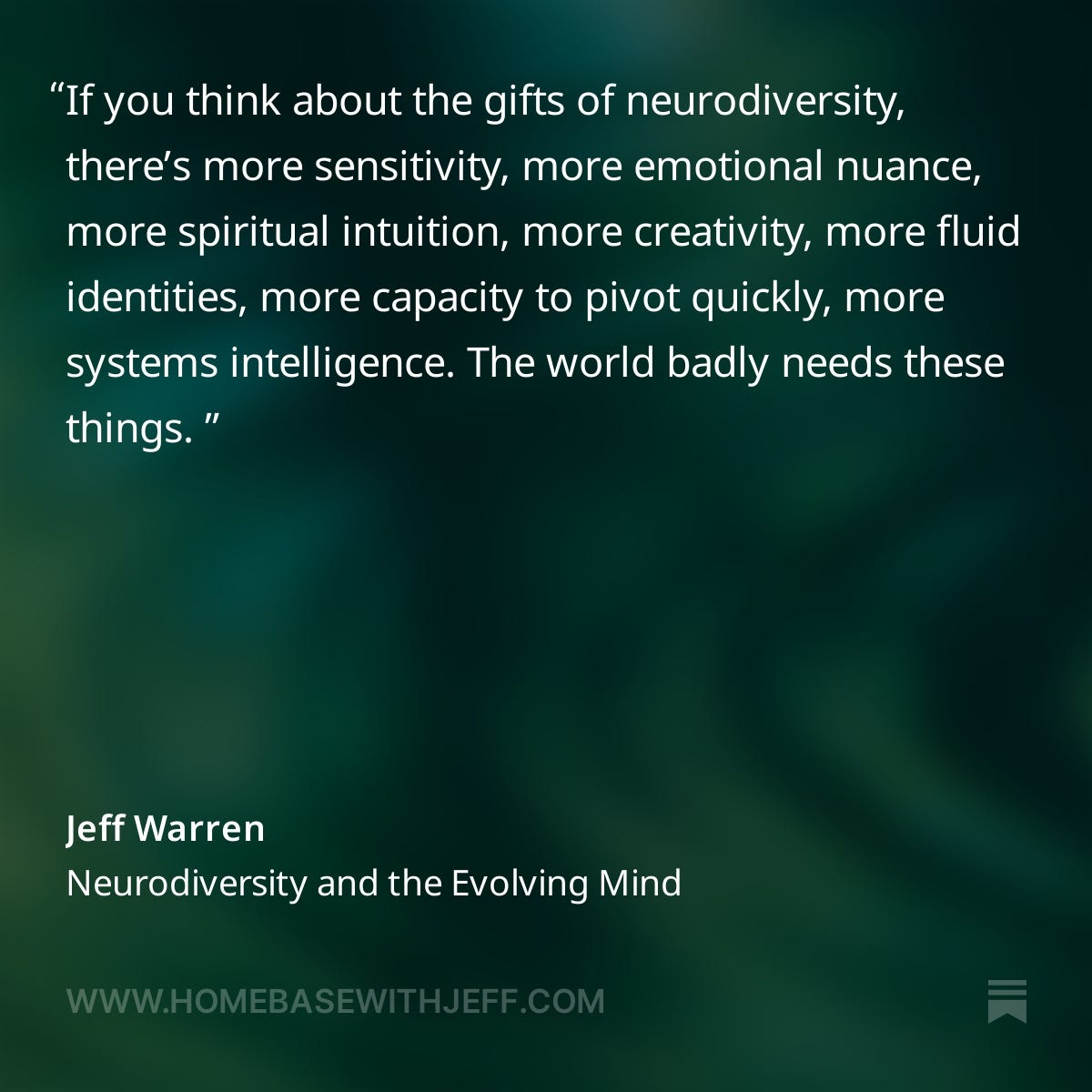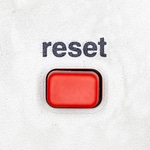Sometimes we don’t know how we are until we hear someone else describe how they are.

Recently I’ve been enjoying Emily Kircher-Morris’ Neurodiversity Podcast.
The best part of the podcast for me are the actual voices of ADHDers and autistic people and PDA adults and dyslexic learners – talking quickly, getting distracted, speaking precisely, being intense, expressing some offbeat sensitivity. Being how they are, unapologetically, on a platform that loves and accepts them (more thoughts on neurodiversity here).
Listening has helped me accept my own differences. A guest will describe some struggle or sensitivity, and only then will I realize that I have the same struggle. I never saw it clearly, because I never knew it had a name. For example, the strong feeling of having failed someone is called “rejection sensitive dysphoria.” It’s a thing! Many people have it, including many of my fellow ADHDers.
Sometimes we don’t know how we are until we hear someone else describe how they are.
You don’t have to be neurodivergent to experience this. I think it’s a big part of why we listen to podcasts, read novels, and have vulnerable conversations. Someone describes the particular alienation, say, of being a parent with young children, and suddenly a vague personal ache comes more clearly into awareness. Or someone writes about the specific effect of a long illness on their body image, or articulates a precisely-felt ambiguity around their gender identity, or captures the smooth fulfillment of drawing with a ballpoint pen on rubber – anything!
In meditation-speak, these are called insights: experiences of truth that settle inside us like clearings.
The idea for today’s meditation is to give you permission to be the unique way you are. I try to do this by offering both a bouncy wandering style of attention, as well as a more focused single-pointed style. Also by making it movement friendly, and friendly to different sensory preferences. All of these are ways into self-regulation, the critical human skill of managing our behaviors and emotional reactions. In a ten-minute meditation, this primarily means paying attention to something that isn’t our worries.
Some people find this kind of broad exploration fun, others … not so much. I think it is still worth doing. For all you caregivers out there – therapists, meditation teachers, social workers, parents and more – it may offer ideas for making practice more accessible to people you care about.
Jeff
ps - I recently had a conversation with my friend Erin Oke about my ADHD, how meditation can support neurodiversity, and other stuff on the evolution of human sensitivity. Read more here.

THIS WEEK ON THE MIND BOD ADVENTURE POD
In our fun conversation with Will Johnson, we explore how cannabis helps some folks get deeper into the somatic side of meditation – breathing through the whole body, connecting to a felt “shimmer” of increased physical and sensory sensitivity. Are we just high, or is this a skillful way to open more deeply to life?
Decide for yourself friends!
UPCOMING “MEDITATION PARTY” RETREAT
May 17-19, 2024
Omega Institute, Rhinebeck New York, and online
Mindfulness, Conversation, and Reckless Conviviality with Meditation Superfriends Dan, Seb and Jeff
Join us for a three-day, do-nothing party with meditation nerds Sebene Selassie, Jeff Warren, and Dan Harris. We’ll do lots of meditating, but this is definitely not a silent retreat. We’ll also be connecting with each other, moving our bodies, (maybe napping), and discovering the power of applying our practice to everything in life.
So many of us meditate solo these days. This is a chance to get the HOV lane benefits of meditating in a group. Come if you’re a beginner or a seasoned practitioner looking to up your game. Seb, Jeff, and Dan teach meditation from very different perspectives, and our goal is to help you explore a variety of techniques, both for on-the-cushion practice and free-range living.














